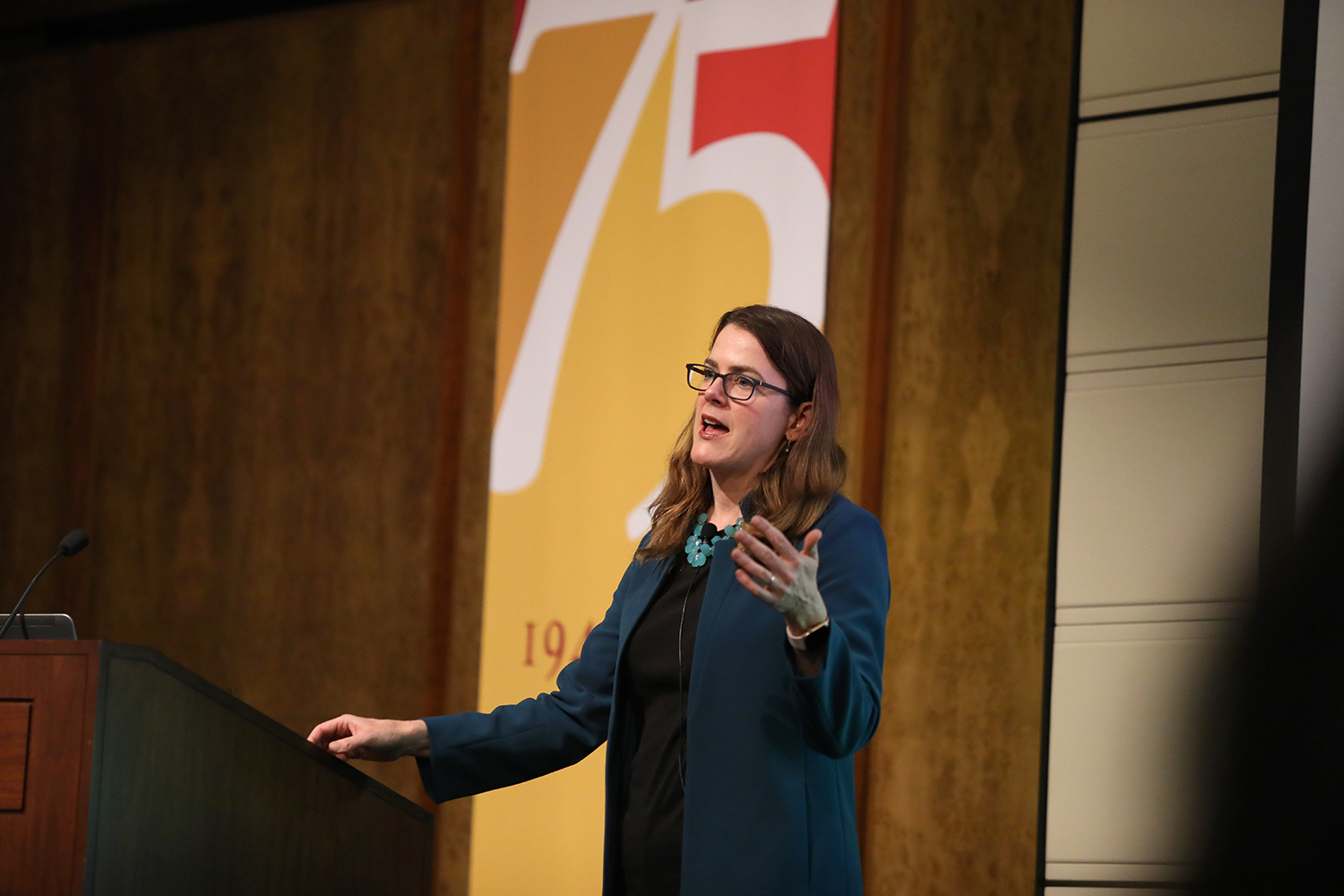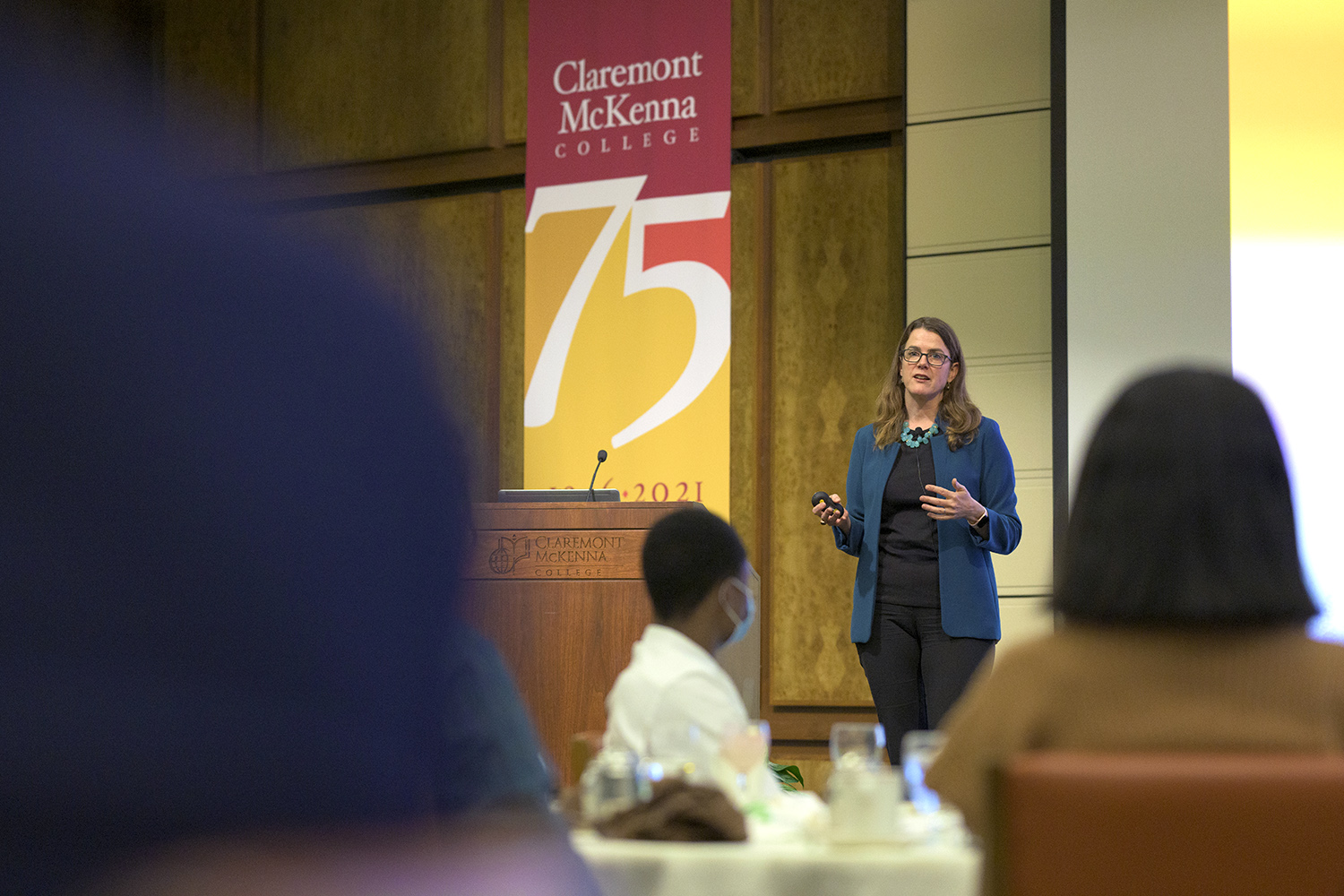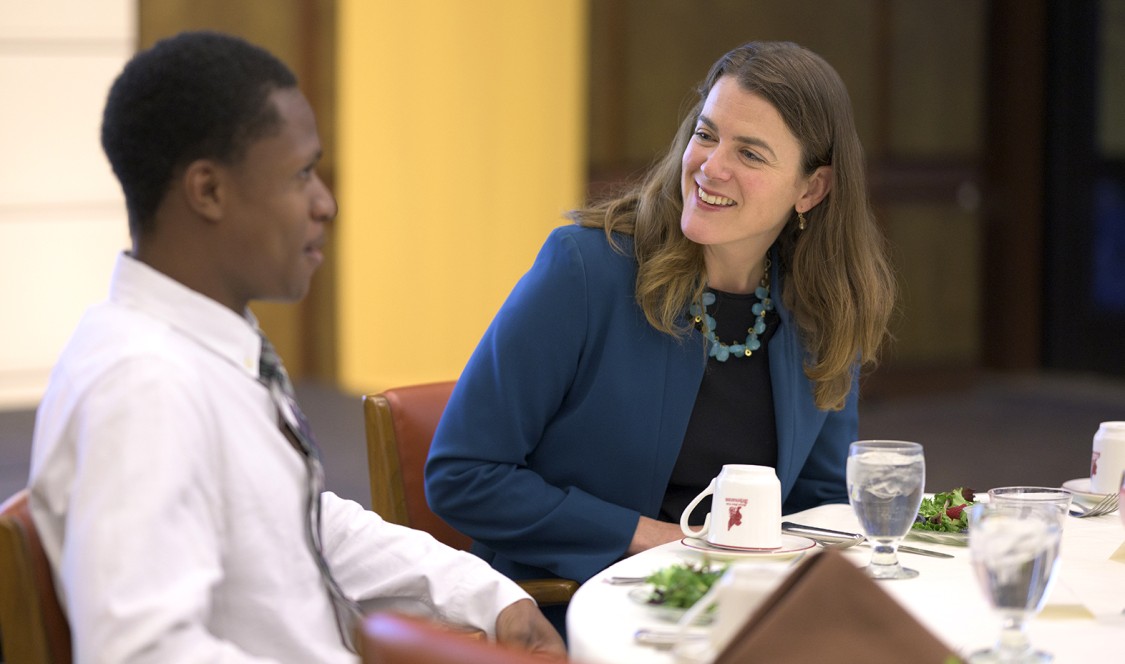Jennifer Burns, whose critically acclaimed biography, “Goddess of the Market,” was based on her exclusive access to author Ayn Rand’s unedited letters and journals, was the March 2 headliner in CMC’s 75th Anniversary Distinguished Speakers series, addressing the theme of “civilization and commerce.”
Her current book project is an intellectual biography of economist Milton Friedman. This makes Burns a pre-eminent authority on the philosophical evolution of not one but two champions of 20th-century capitalism.
In her Ath talk, Burns pieced together how Rand and Friedman set about the task of mooring capitalism, a heretofore value-neutral economic system, to an ethical framework.

“Rand believed Christian ideas about turning the other cheek, about being selfless, had been developed into the communist creed,” said Burns, a Stanford University historian in her recent Athenaeum talk, “Ayn Rand, Milton Friedman, and the Ethics of Capitalism.”
With Soviet views in the cross-hairs, Rand and Friedman marshalled a moral defense of free markets.
Burns prefaced her deep dive into Randian and Friedmanian ethics with an introduction to their intellectual forebearer Frank Knight, a founder of the Chicago school of economics and staunch pre-World War II anti-communist.
It was Knight who first posed the question: “Can capitalism be morally justified?” He developed the useful metaphor of economic life as a game that everyone is compelled to play, but Knight made no headway in assigning moral imperative to competing or winning. Having conceded that “the Christian conception of goodness is the antithesis of competitiveness,” he dropped the matter. “In 1921, you could get away with this tension,” Burns said.
A generation later, Rand and Friedman weren’t so complacent. In a lively exegesis peppered with little-known quotes, vintage photos and other historical nuggets, Burns brought into focus how these two iconic thinkers rooted capitalism in moral theory.
“Both overcome the problem of Knightian uncertainty,” Burns said, by using approaches that are “complementary, not identical. Rand works in terms of ‘the individual.’ Friedman argues in terms of ‘freedom.’

“The important historic shift,” Burns emphasized, “is not the particular way they do it, but that they have such confidence that capitalism is an ethical system, is something you can defend wholeheartedly.”
Interestingly, Burns noted, Russian power was the backdrop against which Knight, Rand and Friedman undertook their moral crusade for capitalism. With the brutal invasion of Ukraine unfolding before our eyes, Russian power is again prompting new debate on the moral foundation for free markets.
“Today we must grapple with Russia not as an economic rival,” she said, “but in terms of its authoritarian political system. Ayn Rand and Milton Friedman are a good place to start. They remind us what is at stake, the uniqueness of the individual and that rare and delicate plant called freedom.”
During the question-and-answer session that followed Burns’ talk, CMC students probed other Randian and Friedmanian ideas. Asked to comment on Rand’s eccentric notion of love as a rational, selfish emotion, Burns said, “You’ll hear this in wellness circles today: that you must love yourself first so that you’re a complete person, that neediness and dependency are not good for the relationship.”
One student wondered how Friedman felt about the Rawlsian critique of generational accumulation of wealth. Another asked about his views on public education. Two students asked about the green movement and the inevitability of environmental degradation as a side-effect of capitalism.
“Rand definitely hated environmentalists. She called them “the new primitives,” Burns reflected. “I don’t recall Friedman really saying anything about environmentalism. He didn't comment on every single issue of this day.”
Burns urged the audience to think outside-the-box when considering the concept of free enterprise:
“It’s easy to just say capitalism is one thing and we all know what that is. There are many different types of capitalisms,” said Burns, challenging students to view market ideas through an adaptive lens, engaging with the philosophical foundations laid by Rand and Friedman.

